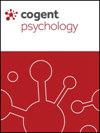刚果民主共和国西南部食用昆虫意向和行为的心理社会决定因素
IF 1.6
Q2 PSYCHOLOGY, MULTIDISCIPLINARY
引用次数: 1
摘要
本文章由计算机程序翻译,如有差异,请以英文原文为准。
Psychosocial determinants of intentions and behaviour towards edible insects in the South-Western part of the Democratic Republic of Congo
Abstract Insect consumption provides a solution to the issue of decreasing food security. Despite these benefits, their acceptance by some consumers as a source of human food remains the main obstacle to their consumption. The present study focuses on three locations in the Democratic Republic of Congo (provinces of Kinshasa, Grand Bandundu and Kongo Central) in a context of food shortage. We examined the socio-demographics, socio-cognitive (Theory of Planned Behaviour, TPB), determinants of intentions and insect consumption, and the additional contribution of emotional associations in a sample of 537 participants (mean age = 34.88, SD = 12.39, 47% females). There was a higher consumption in Kinshasa (M = 4.58; SD = 1.62) and in Grand Bandundu (M = 4.36; SD = 1.54), as compared with Kongo Central (M = 2.29; SD = 1.45). Greater insect consumption was associated with a lower education level, when living in Kinshasa or Kongo central, when attitudes, perceived control and intentions to consume were higher, and when participants experienced lower levels of fear and repulsion towards insects. The results provide insights to better understand the determinants of low consumption in Kongo Central. They also suggest that most TPB dimensions could be potential targets for future interventions that aim to increase insect consumption.
求助全文
通过发布文献求助,成功后即可免费获取论文全文。
去求助
来源期刊

Cogent Psychology
PSYCHOLOGY, MULTIDISCIPLINARY-
CiteScore
2.90
自引率
0.00%
发文量
75
审稿时长
12 weeks
期刊介绍:
One of the largest multidisciplinary open access journals serving the psychology community, Cogent Psychology provides a home for scientifically sound peer-reviewed research. Part of Taylor & Francis / Routledge, the journal provides authors with fast peer review and publication and, through open access publishing, endeavours to help authors share their knowledge with the world. Cogent Psychology particularly encourages interdisciplinary studies and also accepts replication studies and negative results. Cogent Psychology covers a broad range of topics and welcomes submissions in all areas of psychology, ranging from social psychology to neuroscience, and everything in between. Led by Editor-in-Chief Professor Peter Walla of Webster Private University, Austria, and supported by an expert editorial team from institutions across the globe, Cogent Psychology provides our authors with comprehensive and quality peer review. Rather than accepting manuscripts based on their level of importance or impact, editors assess manuscripts objectively, accepting valid, scientific research with sound rigorous methodology. Article-level metrics let the research speak for itself.
 求助内容:
求助内容: 应助结果提醒方式:
应助结果提醒方式:


